Today is World Soil Day: the 11th annual global campaign focused on the importance of healthy soil and to advocate for the sustainable management of soil resources.
The theme of this year’s campaign is caring for soils: measure, monitor, manage, which highlights the importance of research and data in understanding the soil characteristics that underpin decision-making on soil management for food security.
Sustainable soil management is a priority here on our farm. We firmly believe that ‘healthy soil = healthy oil’ and as such we place a huge emphasis on researching, testing and understanding our soil to ensure we are farming the land for long-term, sustainable outcomes.
Working with esteemed organisations like LEAF (Linking Environment and Farming) and One Carbon World we have been able to achieve total carbon neutrality as part of our wider commitment to sustainability. And a huge part of this has been working collaboratively to understand the soil in which we grow our crops.
We are a LEAF Marque accredited farm and a LEAF demonstration farm that sees farmers and industry come together to look at the soil and share best practices so we can constantly evolve our approach. It’s not a one size fits all – there are challenges and a lot of hard work! But through the sharing of key learnings and information, we can constantly tweak our approach and push for more sustainable food production models here in the UK.
Put simply, we think soil is amazing and we want to do everything in our power to help it thrive. We don’t plough to ensure our soil can store as much carbon as possible. We use cover crops to keep the soil covered, adding more organic matter when needed. And we use a wide rotation of crops, alternating between 4 different crops, in addition to cover crops year on year, so if one crop uses up a lot of one nutrient, we can plant a crop that adds that nutrient back into the soil the following year.
By keeping the soil fertile and healthy, we can ensure it stores more carbon to grow nutritious crops in our fields. Because nutritious crops = nutritious food. It’s simply about respecting the land and the process to ensure the best possible outcomes for people and planet.
Our team headed to the Weetabix Northamptonshire Food & Drink Awards last week—an annual event that celebrates local food and drink suppliers, growers, and producers in Northampton. It was wonderful to be in a room with other like-minded folks, all striving for the same thing: to ensure the food we grow and create in the county is not just delicious and high in quality but also sustainable, ethical, and beneficial to everyone along the production line.
The Farming Environment Award is sponsored by Weetabix and recognises protocol growers who have supplied Weetabix within the last two years. It looks at growers who have taken meaningful steps to reduce the environmental impact of wheat growing, whilst taking measurable actions to reduce carbon footprint, promote biodiversity and practice regenerative agriculture.
We are so proud of our farm’s sustainable credentials and our ongoing work to promote biodiversity, so when Farrington’s Farm was announced as the winner of the GOLD award, we were naturally delighted! Of course, it’s always wonderful to win an award, but when it recognises the work, time, effort, and collaborative journey our team has been on to nurture our land and help it thrive, it is even more special.
Here are some of the reasons that led to our award win:-
– We are committed to regenerative agriculture and environmental preservation. And we are always looking at ways in which we can nurture our soil to ensure all of our crops, from wheat to make Britain’s favourite breakfast cereal, to rapeseed which we press on site to make Mellow Yellow cold pressed rapeseed oil is the absolute best it can be.
– We are a LEAF Marque accredited producer and a LEAF demonstration farm. This means we have been independently verified under LEAF’s robust sustainability credentials.
– We stopped ploughing in 1998 and practice minimum and zero tillage to establish crops. Allowing worms and other little soil beasties to create a healthy soil full of life to help us grow our crops.
– To date, around 6,000 trees and over 8km of hedges have been planted, along with extensive wildlife habits created, improved, and maintained around the farm.
– Our farm was certified Carbon Neutral in 2020.
– A network of over 8km of well-maintained public rights of way invites people to enjoy the countryside.
Find out more about our approach to sustainability and our credentials.
Success at Great Taste Awards 2022!
We are incredibly proud of our range of sustainable products! In total we have won FOUR stars across 3 products at the 2022 Great Taste Awards for our Farrington’s Mellow Yellow products this year. The judges have awarded an incredible 2 stars Great Taste award to our versatile Cold Pressed Rapeseed Oil! For most products, this is their second, or even third Great Taste award but for our Smoked Oil, this is the first time it has been awarded a Great Taste star and we couldn’t be happier!
The Great Taste awards are the world’s largest and most trusted food and drink awards, with a panel of over 500 experts judging each product, being described as the ‘Oscars of the food world’. This year, 12,366 food and drink products entered into these prestigious awards, with only the very best products being awarded the coveted stars.
Here’s what the judges had to say about our products:
Cold Pressed Rapeseed Oil – 2 stars: Liquid Gold! A pleasingly golden oil, lightly aromatic, clean and fresh, nutty with light brassica notes. The texture was rich and smooth. The flavour although subtle, was wonderfully nutty and buttery. Very well done.
Honey & Mustard Dressing – 1 star: Glistening dressing with mustard seeds evident and glorious wafts of rapeseed oil. We loved the nutty rich flavour from the oil and thought the sweetness of the honey balanced so well with the bright acidity. Tastes fresh and home made.
Oak Smoked Rapeseed Oil – 1 star: Delicious oil well crafted and produced. This beautiful clear, golden oil almost glistens in the glass. There is a smoky, herbaceous aroma. On tasting it is clean and creamy so it fills the mouth and the gentle smokiness comes through very well and lingers on the finish.
We’re so proud of all our brilliant products, so if you haven’t tried them all, head over to our Where to Buy page and find your local stockist!
A couple of weeks ago, Duncan Farrington was honoured to be included in the panel for the annual LEAF Conference. This is a showcase event normally held in the heart of the financial centre of London, bringing together LEAF members with their customers, journalists, international scientists and policy makers, to hear from speakers on the latest global sustainable issues of the day. This year was different as the conference had to take place online, yet it still was incredibly inspiring and allowed the panellists to share their sustainability goals for the future.
The conference was chaired by Tom Heap, BBC broadcaster with many years’ experience in agricultural journalism, and Duncan was joined by Minette Batters, chair of the National Farmers Union (NFU), Jonathan Wadsworth, lead climate change specialist at The World Bank and Chris Buss, deputy director of the International Union for Conservation of Nature (IUCN) Global Forest and Climate Change Programme.
Each of the panellists shared their sustainability stories, goals and wishes for the future. Here is what each one said, which you can watch via video if you prefer.
Duncan Farrington:
I am very proud that Farrington’s Mellow Yellow is the first food brand in the world to be certified as both carbon and plastic neutral. Having been a LEAF Marque farmer for many years, we are used to collecting data on such things as energy use, which is very helpful as a management tool, but I felt we could use this information as the basis of something bigger and importantly commercially rewarding which led to us becoming carbon neutral.
Through small changes, we have made big differences to our carbon emissions. By reducing the intensity of cultivation on the farm, our fuel usage has reduced 60% to 75%, a broader crop rotation has reduced nitrogen fertiliser usage by 13% and solar panels on our barn roofs generate 50% of our electricity. But the biggest gain has been in soil health from the sustainable techniques I have been practising for the last 22 plus years. I have shown through ongoing soil analysis how a particular field’s general soil health has improved, including soil organic matter which has increased by 75%. The net result has been the absorption of an estimated 300 tons of CO2 by one field alone every year. To put this into context, the total net CO2 removal on our farm is enough to off-set the emissions from around 2,400 Mellow Yellow Minis from UK roads each year. So sustainable agricultural soil management has a huge potential positive influence on climate change.
LEAF already do fantastic work as the trusted go-to organisation supporting sustainable food production and there is now an increasing commercial appetite for climate friendly food that LEAF can lead as a consumer facing organisation. This will drive the commercial success of LEAF farmers and growers, which in turn will deliver the step change in innovation and ambition required. Imagine the kudos and effect if LEAF was successful in winning an award from the Duke and Duchess of Cambridge’s Earthshot prize for championing a carbon friendly food system. That would drive real ambition!
My one climate change wish in the near future is to get an internationally accepted certification for soil organic matter. I am involved in an EU consortium hoping to look at how soils can be accurately evaluated on mass scale using satellite data for their soil carbon content. The ambition is to create a trusted certification, to help land managers explore how their actions can affect soil health, creating the financial and moral incentive to manage land in ways to drive the huge potential of carbon sequestration.
Minette Batters:
The game changer for government and political thinking around climate change is COP26. Farming has seen huge impact from ever more severe weather and farmers are already experiencing the impact of climate change. The NFU has set an ambitious target of net zero by 2040 because we really believe farmers can achieve this with the right incentives. We need to focus on more efficient and sustainable farming, and nobody has shown more leadership in this area than LEAF.
We also need to focus on more carbon storage. There is research into beetle banks that is interesting for example. There is a huge amount that can be done by farmers in carbon storage and this is key. Renewable energy is another big area of opportunity. It is incredibly important for a farm’s diversification to look into renewable energy.
There are a lot of challenges around diet. We need to engage with whole foods and nutrition, cooking from scratch and realising that health is dependent on our diet. We need to look at what we aren’t consuming that we can export too. We also need to revolutionise how we think about water. We need to move water around the country rather than letting diffuse water run into the sea. This needs a strong and ambitious working relationship with government.
My one climate change wish is that COP26 is a game changer, that agriculture rises to the fore across the world and we work together to ensure we are deemed an important part of the solution. Climate change is the challenge of our time and I passionately believe our farmers are the solution.
Jonathan Wadsworth:
The World Bank is an international development organisation with a role to reduce poverty and inequality by lending money to governments of poor countries to improve their economy and standard of living. Over the next 5 years, it will invest $200 billion in climate adaption and mitigation projects.
Progress has been uneven across regions and countries. Millions of people are being left behind, climate change exacerbates these inequalities. The poorest and most vulnerable are hardest hit. To have any hope of achieving sustainable development goals by 2030 we must adapt quickly to climate change and reduce emissions, with urgency. The greatest climate challenge at the moment is how to take action now.
The world food system does an amazing job. For the past 50 years, food production has outpaced population growth, adding $8 trillion a year to global GDP. If the food system was a country, it would have the third largest GDP in the world, behind China and the USA. But this performance comes at a high cost to people and the planet.
Our food system is both a victim and a culprit of climate change, but with the right incentives, approaches and innovations, we know it can be a big part of the solution. The good news is that more and more people are becoming more aware and starting to take action.
LEAF is an excellent example of farmers and researchers working together to find and promote climate-smart solutions. This approach merits being massively scaled up to become a real movement of change and the UK could play a major role.
Agriculture is the only sector able to capture carbon from the atmosphere and store it naturally in vast amounts. We must exploit that advantage fully.
The global food and agriculture system needs to deliver three main things:
– To reduce emissions that contribute at least 30% of the mitigation needed set out by the Paris Agreement.
– Widespread adoption of the planetary human health diet.
– More inclusive development
LEAF can play a key role in continuing to demonstrate what can be achieved and influence governments and investors to find the financial and the political will to support and facilitate a great agriculture and food system transformation.
If I had one climate change wish it would be that COP26 is a success and world governments would recognise that food and agriculture is indispensable for addressing the climate emergency.
Chris Buss:
I work around nature-based solutions and land use and protection of nature, restoration of nature and land production systems. Trees are key for farming systems; they bring nutrients into farming systems, regulate water, provide building materials and firewood. It is a win-win system so makes sense to bring trees into farming.
A great example of the role of nature is pollination. The loss of pollinators is estimated to have a net value of $150 billion to $160 billion. There is a loss to consumers by increased prices, but also a loss of profit to farmers too as they have to replace natural systems.
Success for nature would be farmers helping to make and shape policy. As they manage the land, they are closest to nature and are the key partners globally to help integrate nature into our agricultural systems and shape policies to make sure nature is included in their farming strategies.
One successful strategy that we are building with farmers globally, is working to restore land on-farm and off-farm, bringing trees back into the farming systems. This is critical as it provides farmers with more resilient land use systems, secures supply, sequesters carbon and is socially just.
Moving forward, technical support can be provided to farmers, support can be provided to decision makers going into climate change negotiations and we can build land restoration strategies.
LEAF’s 10 Year Strategy
After a lively Q&A session with Tom Heap, LEAF Chairman Philip Wynn and LEAF Chief Executive Caroline Drummond shared the new LEAF 10 Year Strategy. This is a continuation of their work in developing and promoting more sustainable agriculture through Integrated Farm Management. They are going to support the delivery of positive action for climate, nature, economy and society based on their core work and the principles of circular agriculture.
Their vision:
A global farming and food system that delivers climate positive action, builds resilience and supports the health, diversity and enrichment of food, farms, the environment and society.
The mission:
To inspire and enable more circular approaches to farming and food systems through integrated, regenerative and vibrant nature-based solutions, that deliver productivity and prosperity among farmers, enriches the environment and positively engages young people and wider society.
Their 2031 ambition:
LEAF’s ambition is to play a demonstrable part in transforming farming and food systems. Building on their work since LEAF was established in 1991, this will be through the agro-ecological and regenerative benefits of the whole farm, site specific focus of Integrated Farm Management to drive positive action for climate, nature, economy and society. Embracing circular agriculture with health, diversity and enrichment at the centre of all they do. Through the use of management tools, the harmonisation of metrics, technology, innovations, data and Artificial Intelligence, training, research, demonstration, market opportunity, education and engagement, they will support and contribute to the practical delivery of national and global commitment. This will include the Sustainable Development Goals (SDGs), the Paris Agreement and the Post-2020 Biodiversity Framework.
You can read the full plan here or watch this short video:
The environment has always been at the heart of everything we do, which is why LEAF (Linking Environment And Farming) is so important to us. As a LEAF Demonstration farm and LEAF Marque producer, we are so proud of the work the LEAF team do to encourage other farmers to take a more sustainable approach to their farms.
Here, Caroline Drummond, Chief Executive of LEAF (Linking Environment And Farming) talks about early beginnings, driving forward more sustainable farming and connecting communities…
Our Roots
LEAF celebrates its 30th anniversary next year. We began life in 1991 with a tiny office at the Royal Agricultural Society of England (RASE) at Stoneleigh Park, Warwickshire and one very ancient computer! Initially set up as a three-year project, with seed funding for only three years, we had to become self-financing. And we did just that! The focus in those early days was to set up a national network of LEAF Demonstration Farms – to showcase sustainable farming in action. We launched five farms in that first year and created a membership offer that farmers could sign up to.
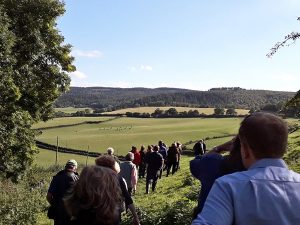
LEAF was set up to do two things: to promote sustainable farming through Integrated Crop Management (ICM) which, as more livestock farmers came on board, later became Integrated Farm Management (IFM) and secondly, to raise public awareness of what farmers were doing to farm with environmental care. LEAF has grown to become a global leader in delivering more sustainable farming and those two objectives remain as true today as they did then.
Sustainable Farming Through IFM
Consumers increasingly want to know more about what they feed their families; they want to eat healthily; they want to know where their food has come from and how it was produced; they want assurance of its sustainable credentials. As people started to visit our growing network of Demonstration Farms, they were asking where they could buy food they were seeing bring grown. This heralded the beginnings of LEAF Marque – our environmental assurance system.
Today we work in 27 countries with over 900 LEAF Marque certified businesses worldwide and over 40% of UK grown fruit and vegetables is grown on LEAF Marque farms. Farrington’s Mellow Yellow were one of the early trailblazers as both a LEAF Demonstration Farm and one of the earliest adopters of LEAF Marque – the first rapeseed oil to be LEAF Marque certified!
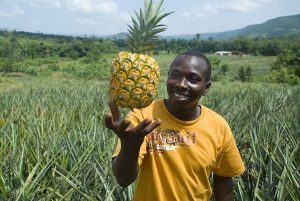
We are hugely proud to have worked with the Farrington’s team over so many years. Their commitment to LEAF and all we stand for, has recently been demonstrated with them becoming the world’s first carbon and plastic neutral food brand.
Building Connections
People have always been at the heart of LEAF’s vision of a world that is farming, eating and living sustainably. Building knowledge and understanding of sustainable farming helps highlight the connections between all living things – soil, plants, animals and people. This understanding gives rise to an attitude of responsibility and care. As a LEAF Demonstration Farm and LEAF Open Farm Sunday host farmer, Farrington’s Mellow Yellow welcomes people from all walks of life to experience farming first hand. Bringing people closer to farming and how their food is produced is opening people’s eyes to the importance of sustainable farming and, in turn, encouraging them to make more sustainable food choices.
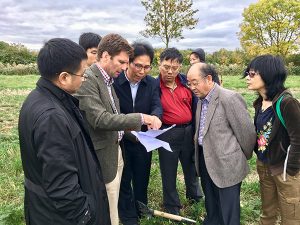
The way forward
Reflecting over nearly three decades, LEAF has come a long way! We haven’t achieved this growth alone. There is no magic bullet to optimising sustainable food production. It requires collective efforts of farmers, governments, retailers, NGO’s, scientists and individuals. All of us working together to achieve shared outcomes – more productive soils, cleaner water and air, greater biodiversity, efficient energy use and improved connections with people, farming and the natural world.
The partnerships LEAF has built over its nearly 30-year history will be key as we navigate the next critical few years.
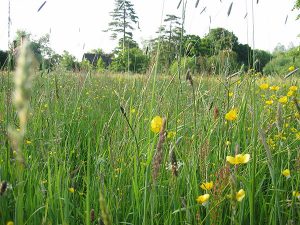
After several years of trying, I am excited to report that renewable energy has returned to Bottom Farm!
As a family we have always been environmentally aware and energy efficient even if, originally, we didn’t realise it. Let me explain. Most actions we take as a society to become more energy efficient are driven nowadays by doing the right thing for the environment and for future generations. In my mind this is the right thing to do. However, these actions are also good common sense and a great way to save a bit of money.
Many years ago, my pioneering Grandfather became one of the first people in Britain to generate electricity from a windmill for his home, see the timeline on our website showing this. He also built his own solar panels to heat water, so he could have a hot bath in the evenings. Later, my Father made his own central heating boiler to burn waste timber from the local timber yard to heat our house. I remember as a teenager in school holidays, having to fill and light the boiler every morning with six-foot lengths of off-cut pine, leftover from the manufacture of garden sheds and fences. Without this boiler, we wouldn’t have hot water, or a warm house.
Today such practices would be applauded as great examples of people doing their bit for the environment. However, the reality was that both my Father and Grandfather, were driven by ways to run their homes efficiently in order to save a bit of money. Plus they both enjoyed trying to do things a bit differently. Eventually the timber yard closed down and the boiler was at the end of its life, so it was replaced with a modern oil-fired central heating boiler.
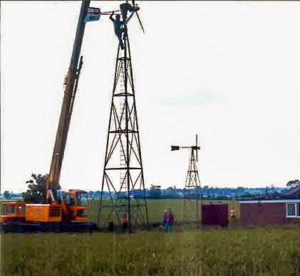
Duncan’s grandfather’s home-built windmill
Move forward a few years and people became more aware of our effect on the environment and potential ways to ‘reduce one’s carbon footprint’ by creating ‘renewable energy’ using a whole range of new and exciting technologies such as: solar photo voltaic systems; biomass boilers or combined heat and power; ground source heat pumps; rain water harvesting and several more. We have collected rain water both on the farm and at our home for many years. Our youngest daughter, Amelia, was talking about this in her geography class only the other day, not realising that this is still relatively unusual, as she assumed this was standard in all homes and couldn’t understand why not.
Apart from rainwater harvesting and other good practises like using LED lighting, or even encouraging people to turn lights off, or to keep doors closed when it is cold, we have not had any renewable energy at Bottom Farm for over fifteen years. This was not for lack of trying though…
Around the turn of the Millennium, we looked at installing a wind farm on the farm. I was keen to follow in my Grandfather’s footsteps and thought people would love the idea, but unfortunately our neighbours in the village were not quite as enthusiastic as I was. We gave up on that idea soon after. Later, when Farrington Oils needed more electricity, I looked at putting solar panels on the factory roof, however it turned out that as we live in a small village, with Bottom Farm being at the end of the power line, we had the wrong sort of electricity and not enough of it to work with solar panels. So again, a dead end.
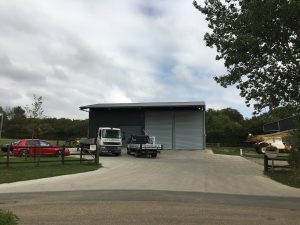
Our grain store, pre-solar panels
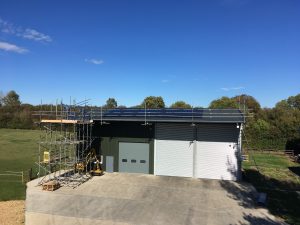
Our grain store, during solar panel installation
Now after three years of planning, working with the local electricity supplier and substantial investment on our part, we now have a new electricity supply to Bottom Farm. The local electricity supplier is delighted with this as they can give a more reliable supply to the rest of Hargrave, meaning that lights and televisions will stay on in the winter months. More importantly, it is now the right sort of electricity to work with solar panels!
We now finally have solar panels on two barn roofs, which will generate over half the total electricity we use at Bottom Farm. So, when you enjoy using Mellow Yellow in your cooking, just think, your little bottle of sunshine is grown using the power of the sun and then cold pressed with the power of the sun too. Surely that’s got to be good for all our futures?
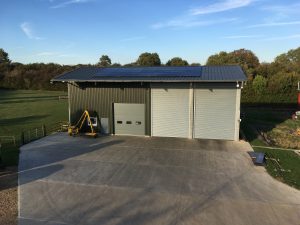
Our grain store with completed solar panels
Duncan Farrington

Now that the weather is warming up, it is the perfect time to start making salad dressings with cold pressed rapeseed oil. With half the saturated fat of olive oil and ten times the Omega 3 of olive oil, cold pressed rapeseed oil is a fantastic choice for creating healthy salad dressings. Not only healthier, Mellow Yellow Cold Pressed Rapeseed Oil has a very subtle nutty flavour with buttery undertones, a fantastic flavour profile for creating delicious salad dressings. As we grow, press and bottle our rapeseed oil on our farm in Northamptonshire to LEAF Marque standards, you can rest assured that you are using a high quality, environmentally responsible British product.
Now that we know how great the oil is, here are some recipes for salad dressings with cold pressed rapeseed oil…
Blackberry Vinegar Dressing
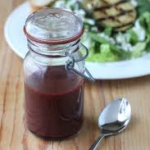
Ingredients:
1tsp Dijon mustard
1tbsp blackberry vinegar (we like Scrubby Oak or you can make your own with our simple recipe below)
3tbsp Farrington’s Mellow Yellow Rapeseed Oil
Method:
Mix the blackberry vinegar and dijon mustard in a screw top jar, then put the lid on and shake well. Add the Mellow Yellow (put the lid on again!) and shake vigorously again to get it all thoroughly blended. Adjust seasoning to taste. Store in the fridge and enjoy.
For the Blackberry Vinegar, steep blackberries with an equal quantity of cider vinegar for 5-10 days. After this time, strain the liquid and boil for 8-10 minutes with 450g of sugar per 700ml of liquid.
Sweet Oriental Dressing
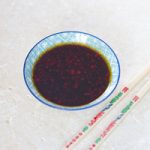
Ingredients:
1tbsp runny honey
½ chopped red chilli
1 tbsp dark soy sauce
1 tbsp Mellow Yellow Rapeseed Oil
Method:
Combine the runny honey, chopped chilli, dark soy sauce and Mellow Yellow Rapeseed Oil. Stir vigorously until combined.
Did you know that we make our own range of salad dressings?
– Honey & Mustard Dressing – Superbly balanced sweetness with a fantastic bite. Use on anything from a salad to a sausage. Try Honey & Mustard on our Asparagus, Salmon and Avocado Bruschetta as a tasty lunch or light dinner, the salmon and avocado perfectly complement the sweet and sharp flavour from honey and mustard.
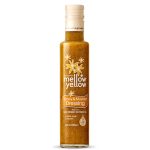
– Classic Vinaigrette – The ultimate salad dressing with a sharp tangy taste, perfect for a green salad. Try Classic Vinaigrette in this recipe for a Protein Power Pot with quinoa, watercress, egg and tuna for a filling lunch recipe ideal for taking to work.
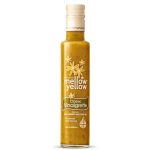
– Balsamic Dressing – A modern British twist on the classic Italian dressing, made with Aspall’s Apple Balsamic Vinegar for a deliciously fruity flavour. This dressing is perfect with Tomato, Basil and Mozzarella to highlight the delicious Italian flavour of the balsamic.
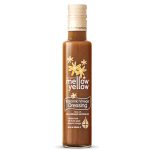
Find more salad recipes on the Recipe section of our website.
Here at Farrington’s, we don’t use neonicotinoids on our rapeseed crop. This is for many reasons, mainly because of the concerns related to this pesticide and the effect on bees. You can read more about our bee friendly rapeseed and what else we do to keep the bees on our farm healthy and happy here.
Friends of the Earth, a campaign group looking for solutions to environmental problems, is concerned about the impact of neonicotinoids on bees and other pollinators and urged farmers to join them in pledging not to use neonicotinoids. We were asked us to join the Bee Friendly Shoppers Guide to Rapeseed Oil, of which we are 1 of only 7 rapeseed oil producers on this list. Of course we said yes! The guide aims to educate shoppers on which oils to buy, and how these oils are helping Britain’s bees. As part of the guide, we have pledged not to use the three neonicotinoid pesticides which are currently restricted across the EU, and will continue to avoid these pesticide even if the ban is lifted.
The Bee Friendly Shoppers Guide to Rapeseed Oil is supported by a number of leading chefs. These include Kevin Gratton, chef director for Mark Hix Restaurants, David Everitt-Matthias of Le Champignon Sauvage, Martin Burge, executive chef at Whatley Manor Hotel & Spa and Tom Hunt, eco chef owner of Poco Tapas Bar. Friends of the Earth, alongside the supporting farmers and chefs, are asking consumers to support the initiative by buying the bee-friendly rapeseed oils detailed in the guide.
Friends of the Earth’s Bee Campaigner, Nick Rau, said “We’re delighted Farrington’s Mellow Yellow is standing up for Britain’s bees by pledging not to use these three bee-harming pesticides on their rapeseed crops. They deserve our support. We hope more farmers and producers follow their lead and say no to these neonicotinoid pesticides. Nature-loving shoppers can back this pioneering initiative by checking out the Bee Friendly Shoppers Guide to Rapeseed Oil and choosing these products in supermarkets, local stores and online.”
To read more about the Bee Friendly Shoppers Guide to Rapeseed Oil, please visit: http://www.rapeseedoilguide.com/
Back in 2012, thanks to the growing success of Farrington’s Mellow Yellow we started using rapeseed from a second farm, working with our neighbours, in addition to the seed we grow on our own farm. See my blog; “Mellow Yellow Popularity Grows” April 10, 2012. Now, we have added a third farmer to the list.
The Bletsoe and Farrington families have been neighbouring farmers since at least my great grandfather’s day. Like most farming neighbours, we have developed strong friendships over those generations, built on trust and the odd bit of occasional light hearted banter.
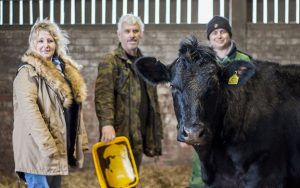
Emma Bletsoe has, for several years, used our rapemeal, produced as the by-product from pressing the oil out of the seed, to feed her cattle. Then a couple of years ago, Emma and I were chatting at a local gathering, when the conversation moved on to her rapeseed crop and my future needs for more LEAF Marque rapeseed. Emma thought that as well as buying the meal off us, perhaps she could also sell us her seed in the first place. Emma and her guys on the farm, Garry and Stuart, have worked hard to meet the rigorous LEAF Marque standards, which they passed with flying colours.
Now we purchase seed from Emma, which ensures I have a fully traceable, accredited supplier; while Emma gets a little bonus and the odd bottle of oil for the extra work required. Then once we have pressed the seed to produce our Mellow Yellow, Gary or Sturt arrive with their tractor and trailer to collect the rapemeal, which they use to make a healthy and, again fully traceable, meal for their cattle. This is something the cows particularly like in the cold winter months when they are kept in warm straw-bedded barns, as opposed to eating fresh grass in the fields during the summer.
This is a prime example of neighbouring farmers working well together, making happy farmers, happy cows and most importantly, the best quality, delicious Farrington’s Mellow Yellow that you can trust every time.
Farrington’s Mellow Yellow’s commitment to environmentally sustainable farming has been recognised in The Grocer Gold Awards 2015, the most prestigious awards in the food and drinks industry. The company were shortlisted as finalists in The Green Initiative of the Year category. The awards focus on key business areas including innovation and customer satisfaction and this is a new category for 2015 recognising ‘specific and material achievements’.
Farrington’s Mellow Yellow launched in 2005 but it was two years before its launch in 2003 that farmer Duncan Farrington decided to become a LEAF Demonstration Farm and planted his rapeseed crops under the LEAF Marque standard. This decision to grow and produce his brand of cold pressed rapeseed oil to the highest environmental standards, raised the bar of British produced culinary oils as he led the growth of the sector within the UK.
Duncan has taken a long term approach to environmentally sustainable farming, changing the ethos of his family farm and making a commitment to continual trial, learning and development. Duncan joined LEAF in 1993 and has played a vital role in the wider organisation as a dedicated LEAF farmer.
One of the unique aspects of being a LEAF Demonstration Farm is the accessibility people have to the farm. From the nationwide Open Farm Sunday event to visits from local schools or Woman’s Institutes for example; Duncan regularly hosts farm walks. It is on these walks that you learn how agriculture and the environment go hand in hand and Farrington’s, like many other farmers, create the produce on your local supermarket shelf. Duncan’s personal passion is how he looks after his soils, using the very latest technologies, combined with traditional practices learned over centuries. Indeed, Duncan’s mantra is ‘From healthy soils, we produce healthy oils’.
Cold pressed rapeseed oil continues to grow in popularity and is much loved by chefs and home cooks alike who appreciate its culinary and health properties. Duncan Farrington said ‘Farrington’s Mellow Yellow is the only LEAF Marque branded cold pressed rapeseed oil, and highlights our unique approach to quality production that is at the core of our trusted brand. We are delighted to be recognised in The Grocer Gold Awards 2015’. The Grocer Gold 2015 Awards were announced at a prestigious event at Guildhall London on 9th June 2015. Duncan and Eli Farrington were joined by Caroline Drummond, Chief Executive LEAF, and Kelly Castelete, Marketing Manager for Farrington’s Mellow Yellow. Despite not winning the category, the company were thrilled to be shortlisted and enjoyed the chance to celebrate the success with customers including Booths, Ocado, Hello Fresh, Sainsbury’s and Waitrose.

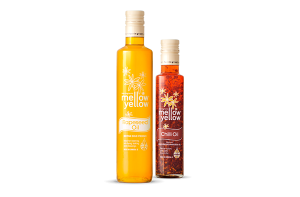 Oils
Oils Rapeseed Oil
Rapeseed Oil Chili Oil
Chili Oil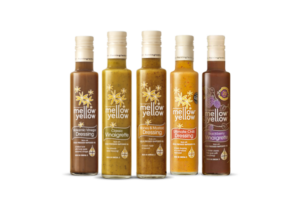 Dressings
Dressings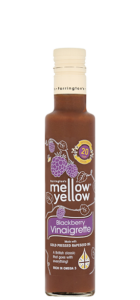 Blackberry Vinaigrette
Blackberry Vinaigrette Classic Vinaigrette
Classic Vinaigrette Balsamic Dressing
Balsamic Dressing Honey & Mustard
Honey & Mustard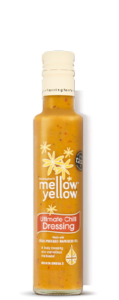 Ultimate Chilli Dressing
Ultimate Chilli Dressing